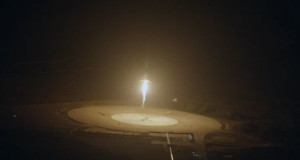NASA’s recent discovery of flowing water on the surface of Mars has rekindled a vital debate: What is the proper role of NASA in an era when private companies are actively competing to open more access to space?
The success of commercial space ventures is no small feat. I served as the first private astronaut working on techniques to manufacture new medicines in space on three space shuttle flights in 1984-85. Now companies like SpaceX and Virgin Galactic are building their own rockets, launching satellites and ferrying supplies to the International Space Station.
Some have suggested that we outsource to these companies even bolder space exploration. SpaceX founder Elon Musk has already boasted plans for a new rocket that could send citizen colonists to Mars years ahead of NASA’s schedule and for only $500,000 a ticket. That’s dirt cheap.
The idea is attractive, even if commercial plans for a Mars mission are hypothetical at best. But as much as I support the private space industry, experience and common sense tell me that a commercial Mars human landing won’t ever get off the ground — not unless NASA goes there first.


